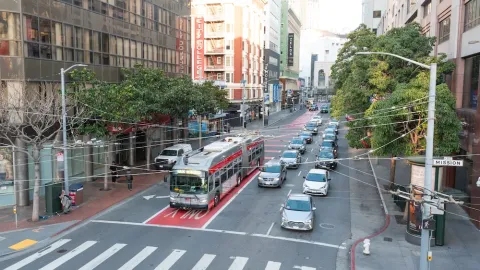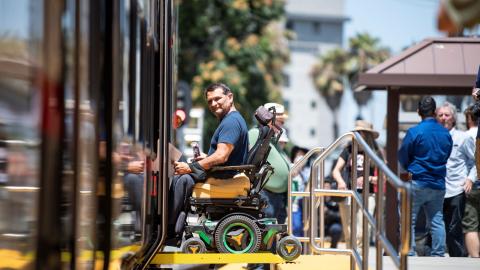For many years in planning and transportation circles, parking was a subject taken for granted – like the air we breathe or the water we drink. It was so much a part of the built environment, so necessary for modern mobility, and – frankly – so esoteric that it didn’t warrant much consideration beyond the fact there should be plenty of it, and it shouldn’t cost too much either.
This started to change in 2005 when UCLA professor Donald Shoup synthesized decades of at-the-time lonely research on the subject in his book, The High Cost of Free Parking. As summarized in the above video from Vox, the book showed how parking has been misunderstood and mismanaged, resulting in city parking policies that increase housing costs and encourage sprawl; subsidize cars and car-owners at the expense of those who cannot afford or do not want to buy a car; and make the urban environment less walkable, less beautiful and less productive.
Now, Shoup has released a new book, Parking and the City, as follow-up. From the UCLA Newsroom:
“Parking is the Cinderella of transportation,” writes Shoup in his introduction, explaining that the field received little attention or status for many years.... In [the] new book, Shoup reiterates and distills [his] earlier 800-page work into three recommended parking reforms designed to improve cities, the economy and the environment:
- Remove off-street parking requirements
- Charge the right prices for on-street parking
- Spend the parking revenue to improve public services on the metered streets
“Each of these policies supports the other two,” writes Shoup. They counteract what he describes as “three unwisely adopted car-friendly policies” that arose from the beginning of the automobile age: separated land uses, low density and ample free parking to create drivable cities while undermining walkable neighborhoods.
As described by the publisher, the new book:
… reports on the progress that cities have made in adopting these three reforms. The successful outcomes provide convincing evidence that Shoup’s policy proposals are not theoretical and idealistic but instead are practical and realistic. The good news about our decades of bad planning for parking is that the damage we have done will be far cheaper to repair than to ignore. The 51 chapters by 46 authors in Parking and the City show how reforming our misguided and wrongheaded parking policies can do a world of good.
For more information, visit the UCLA website.



Submit your comment
In order to receive a reply to your comment, please provide an email address.